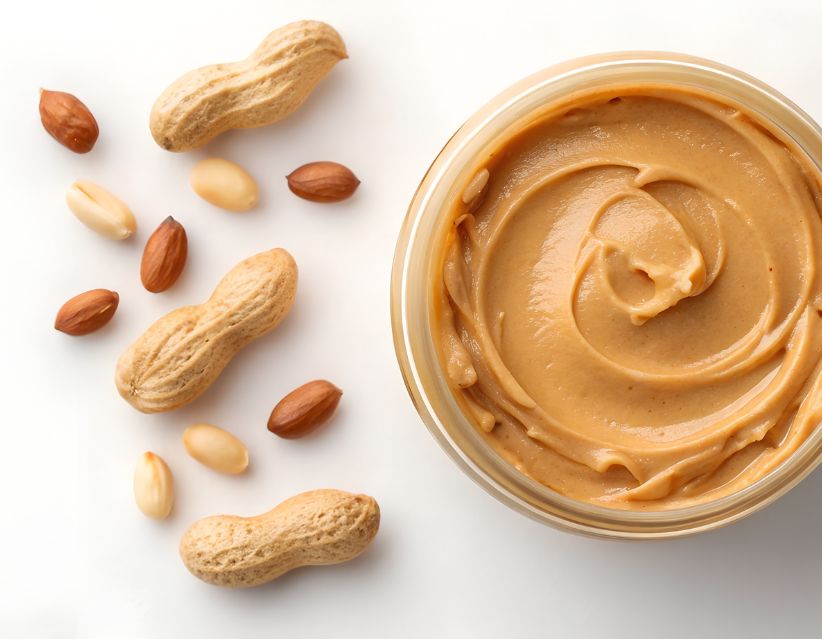I discovered early on that relying solely on bursts of motivation was like trying to run on a sprint every day. Instead, I embraced the power of discipline to drive my daily habits, overcome procrastination, and achieve long-term success. This blog is a personal account of how I shifted my mindset, built effective routines, and learned to thrive by practicing discipline over motivation. I’ll share actionable tips, real-life experiences, and practical insights that can help you create lasting change—no matter what challenges you face.
A Personal Journey Toward Lasting Change
At 25, I found myself constantly waiting for the right moment or that perfect wave of inspiration. However, I soon realized that motivation is unpredictable, and depending on it often left me frustrated and overwhelmed. I began to understand that sustainable progress comes from discipline—showing up every day, even when I didn’t feel like it.
I once spent days procrastinating important tasks, feeling trapped in a cycle of delay and regret. It was only when I started focusing on structured, consistent habits that my life began to change. This personal transformation is what drives me to share my story and encourage you to adopt self-discipline strategies that work in real life.
Understanding the Power of Discipline Over Motivation
What Does It Mean to Choose Discipline Over Motivation?
In simple terms, discipline means committing to your goals regardless of your emotional state. Unlike motivation, which can be fleeting, discipline is built on consistent, deliberate actions. By choosing discipline, I learned to:
- Establish Routines: Create daily habits that form the foundation for success.
- Practice Self-Control: Use simple techniques to manage distractions and keep my focus intact.
- Overcome Procrastination: Break tasks into manageable steps and commit to finishing them without waiting for a burst of inspiration.
This approach has been a game changer, turning overwhelming to-do lists into a series of achievable tasks. With each small win, I built a resilient routine that not only boosted my productivity but also my confidence.
Why Discipline Matters More Than Motivation
I once believed that I had to wait until I felt motivated to start a task. However, I quickly learned that waiting for motivation often led to unnecessary delays and missed opportunities. Instead, by cultivating discipline, I established a structure that carried me through even the toughest days. Here’s what I discovered:
- Consistency Over Impulse: Discipline creates a routine that doesn’t rely on how you feel in the moment.
- Long-Term Success: While motivation may kickstart a project, discipline ensures that you see it through to completion.
- Reduced Stress: Knowing that you have a plan in place minimizes anxiety and helps you focus on your goals.
This mindset shift has allowed me to tackle challenges head-on and maintain steady progress, regardless of life’s ups and downs.
Practical Self-Discipline Strategies for Daily Success
Building Daily Habits That Stick
Creating lasting habits isn’t about radical changes overnight—it’s about making small, intentional adjustments that add up over time. Here’s what helped me develop my daily routines:
- Start Small: Begin with one simple habit. For example, I started by making my bed every morning. Once this became second nature, I gradually added more tasks to my routine.
- Set Clear, Achievable Goals: I write down my goals for the day. Breaking them into small, manageable steps makes them less intimidating and easier to complete.
- Use Reminders and Timers: I set alarms or use simple timers to stay on track. Even dedicating just five minutes to a task can help break the cycle of procrastination.
- Track Your Progress: Keeping a journal or using a habit tracker allows you to see your improvement over time. This not only boosts motivation but reinforces the power of discipline.
These practices have helped me build a routine that supports my long-term ambitions, making it easier to stay focused even when distractions arise.
Overcoming Procrastination with a Structured Routine
I used to be a chronic procrastinator, often putting off tasks until the last minute. Changing that habit required a shift in perspective and a few practical steps:
- Break Tasks Into Smaller Steps: Instead of viewing a project as a huge, daunting task, I divide it into smaller, manageable actions. This makes the task seem less overwhelming.
- Create a Distraction-Free Workspace: I designate a quiet area specifically for work. Keeping my workspace clear of distractions like social media or unnecessary notifications has made a huge difference.
- Commit Publicly: Telling a friend or posting my goals on social media creates a sense of accountability. This external pressure encourages me to stick with my plans even when I feel like giving up.
- Reward Yourself: I set up small rewards for when I complete a task. Whether it’s a short break, a cup of coffee, or simply a moment of relaxation, these rewards reinforce the habit of finishing what I start.
These simple changes helped me transition from procrastination to a more proactive, disciplined way of living. By committing to a daily routine, I can tackle my responsibilities head-on and achieve consistent progress.
Self-Control Techniques to Enhance Productivity
Maintaining self-control is crucial when your environment is full of distractions. Over time, I’ve adopted several techniques that have significantly boosted my productivity:
- Mindfulness Meditation: Spending just a few minutes each day in quiet meditation helps me center my thoughts and reduce stress. This practice improves my overall focus and keeps me grounded.
- Positive Affirmations: I regularly remind myself of my abilities and strengths. These affirmations build my confidence and help me stay committed to my daily goals.
- Scheduled Breaks: Instead of working non-stop, I incorporate regular breaks into my day. This balance prevents burnout and keeps my mind fresh for the next task.
- Accountability Partners: Having someone to check in with makes a big difference. Sharing my progress with a friend or mentor keeps me honest about my commitments and motivated to push forward.
By integrating these self-control techniques into my daily routine, I’ve been able to create a work environment that minimizes distractions and maximizes focus.
Crafting a Structured Routine for Personal and Professional Growth
The Importance of a Consistent Daily Routine
A well-structured routine is the backbone of sustained success. When I adopted a daily schedule that aligned with my personal and professional goals, I noticed a significant improvement in my productivity and overall well-being. Here’s how I structured my day:
- Morning Rituals: I begin each day with a simple routine—hydration, light exercise, and a review of my daily plan. This sets a positive tone and prepares me for the day ahead.
- Focused Work Blocks: I designate specific time blocks for focused work without interruptions. This helps me dive deep into tasks and accomplish more in less time.
- Evening Reflection: At the end of the day, I take a few minutes to reflect on my achievements and identify areas for improvement. This practice helps me recalibrate my goals for the next day and reinforces my progress.
By sticking to this structured routine, I’ve learned that discipline isn’t just about working hard—it’s about working smart and ensuring every part of your day contributes to your long-term success.
Achieving Consistent Goals Through Daily Discipline
For me, success isn’t measured by occasional bursts of productivity but by the steady progress made through consistent, disciplined actions. Here’s how I ensure that my goals are met day after day:
- Daily Planning: Every morning, I list the top three tasks I need to complete. This focused approach prevents me from getting overwhelmed and ensures that I prioritize what truly matters.
- Visualizing Success: I maintain a vision board that reminds me of my long-term goals. Seeing these visual cues daily reinforces my commitment to my routine.
- Flexibility with Structure: While discipline is essential, I also allow some flexibility. Life can be unpredictable, so I adjust my schedule when needed without compromising the overall structure.
- Celebrating Small Wins: Each completed task is a step forward. I celebrate these small victories, which keeps my momentum strong and my mindset positive.
This blend of planning, visualization, and flexibility has helped me stay on track and achieve my goals consistently, reinforcing the idea that discipline, not motivation, is the key to long-term success.
Quick Tips and FAQs for a Discipline-Driven Life
Quick Tips
- Start with the 5-Minute Rule:
- Set a timer for just five minutes. Often, the hardest part is starting, and once you begin, you’ll likely continue.
- Create a Dedicated Workspace:
- Choose a quiet, distraction-free area for work. This simple step helps maintain focus and boosts productivity.
Frequently Asked Questions
Q1: What is the main difference between discipline and motivation?
- Answer: Motivation is a temporary emotional boost, while discipline is the steady, daily commitment to your goals.
Q2: How can I build daily habits that last?
- Answer: Start small, set clear goals, use reminders, and track your progress. Over time, these micro-habits will become an integral part of your routine.
Q3: What are some effective self-control techniques?
- Answer: Try mindfulness meditation, positive affirmations, scheduled breaks, and having an accountability partner to keep distractions at bay.
Q4: How do I overcome procrastination when I’m unmotivated?
- Answer: Break tasks into smaller steps, create a distraction-free workspace, and reward yourself after completing tasks to build momentum.
Q5: Can discipline over motivation lead to long-term success?
- Answer: Absolutely. Consistent, disciplined actions build the framework for long-term achievement, regardless of how motivation fluctuates.
Conclusion: Embrace Discipline for a Fulfilling Life
The journey to success isn’t paved with random bursts of motivation—it’s built on daily discipline. By creating a structured routine, establishing small yet impactful habits, and using practical self-control techniques, you can overcome procrastination and achieve your goals. My personal experience has taught me that embracing discipline over motivation not only leads to consistent success but also enriches every aspect of life. It’s about showing up every day, taking one small step at a time, and believing in the process.
Every day offers a new opportunity to build on your successes. Whether it’s planning your day with clear priorities or creating a dedicated workspace that fosters focus, every choice counts. I invite you to try these strategies and see the transformation for yourself. Let discipline be the guiding force that turns your dreams into achievable goals.
Remember, it’s not about being perfect; it’s about making progress. Embrace the journey, celebrate your wins, and never let a lack of motivation hold you back. Your success story begins with the disciplined choices you make today.











